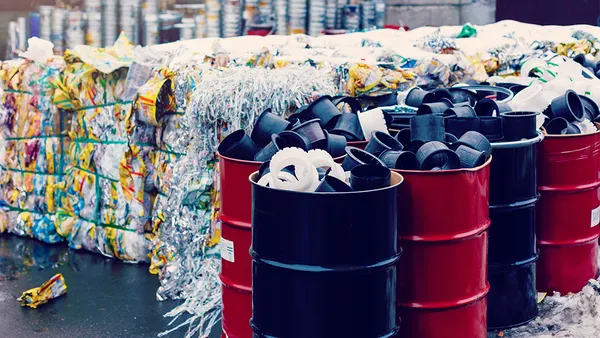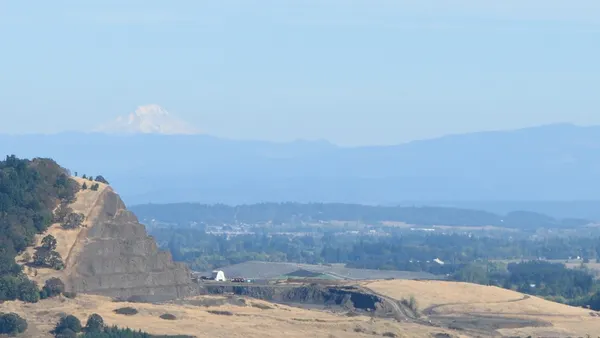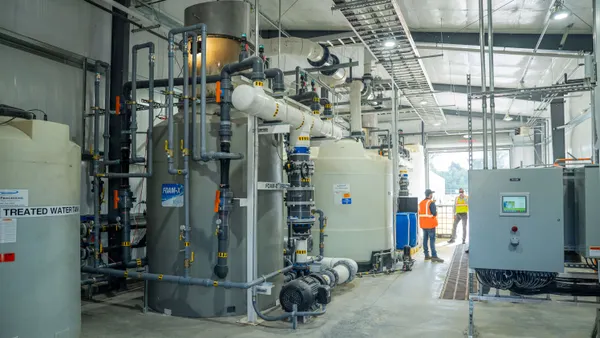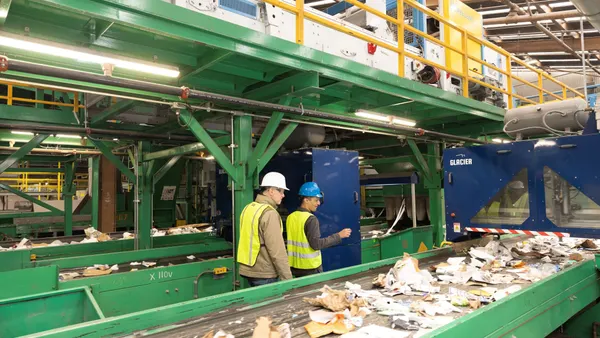UPDATE: Republic Services has reversed course on plans to accept coal ash at the Broadhurst Environmental Landfill in Georgia, withdrawing three related permit applications, as reported by The Florida Times-Union.
One application was to modify an existing U.S. Army Corps of Engineers permit for construction of a rail yard to accept deliveries of ash by train. The other applications were to Georgia Environmental Protection Division for a water quality certification and an update that would have altered the site's solid waste permit to allow for a monofill cell.
"We believe that by withdrawing these pending permit applications, while we sit down with community leaders to further explore potential common ground, we are going above and beyond to demonstrate our commitment to Wayne County," Drew Isenhour, area president for Republic, in a press release.
Republic has previously recognized communication issues around their handling of the proposal and the potential to accept coal ash had attracted much opposition. It also inspired unsuccessful state legislation to limit the practice in Georgia. The company now says it doesn't plan to restart the conversation around bringing coal ash to Broadhurst at any point in the near future.
Dive Brief:
- The Florida Times-Union has learned that former President Jimmy Carter sent a handwritten letter to Bill Gates asking him to stop Republic Services' plan to dispose of coal ash at the Broadhurst Environmental Landfill in Georgia. Gates is one of the company's principal holders.
- The site stopped accepting coal ash in 2014, but could potentially receive much higher volumes than before if this plan goes through. In his letter, Carter raises concerns about potential environmental degradation. "This will adversely impact some favorite streams of mine, where my father took me fishing many years ago," he wrote. "I hope you will help prevent this ..."
- The U.S. Army Corps of Engineers has yet to rule on an application for a rail yard next to the landfill to handle coal ash trains. Republic has since withdrawn an expansion application for the landfill, though indicated it may reapply in the future.
Dive Insight:
The coal ash in question would be coming from Duke Energy power plants in North Carolina at an estimated rate of 100 rail carloads per day. A 2014 state law required Duke to close its coal ash ponds within 10 years — starting in 2019 — and this Georgia landfill is seen as a strong option. Though public opposition has grown after it was recently revealed that residents weren't informed of a prior leak at Broadhurst for years.
Environmental advocates say Duke should keep the ash within its state, but that would require building new lined landfills and recycling facilities. In March, South Carolina passed a law banning out-of-state ash from local Class 2 landfills. A representative for Georgia's Sierra Club has said a similar state bill could be introduced in January when the legislature reconvenes. Advocates say that a 2000 county ordinance prohibiting development on wetlands could also be used to stop the plans at Broadhurst.
New federal regulations on coal ash disposal have been seen as an opportunity for the waste industry to get involved, but additional state laws and community pushback can make this complicated. Despite these challenges the coal industry is still creating an estimated 140 million tons of ash per year that needs to be disposed of in a safe manner. Like solid waste, the material may not be appealing to many communities but it will have to end up somewhere eventually.










